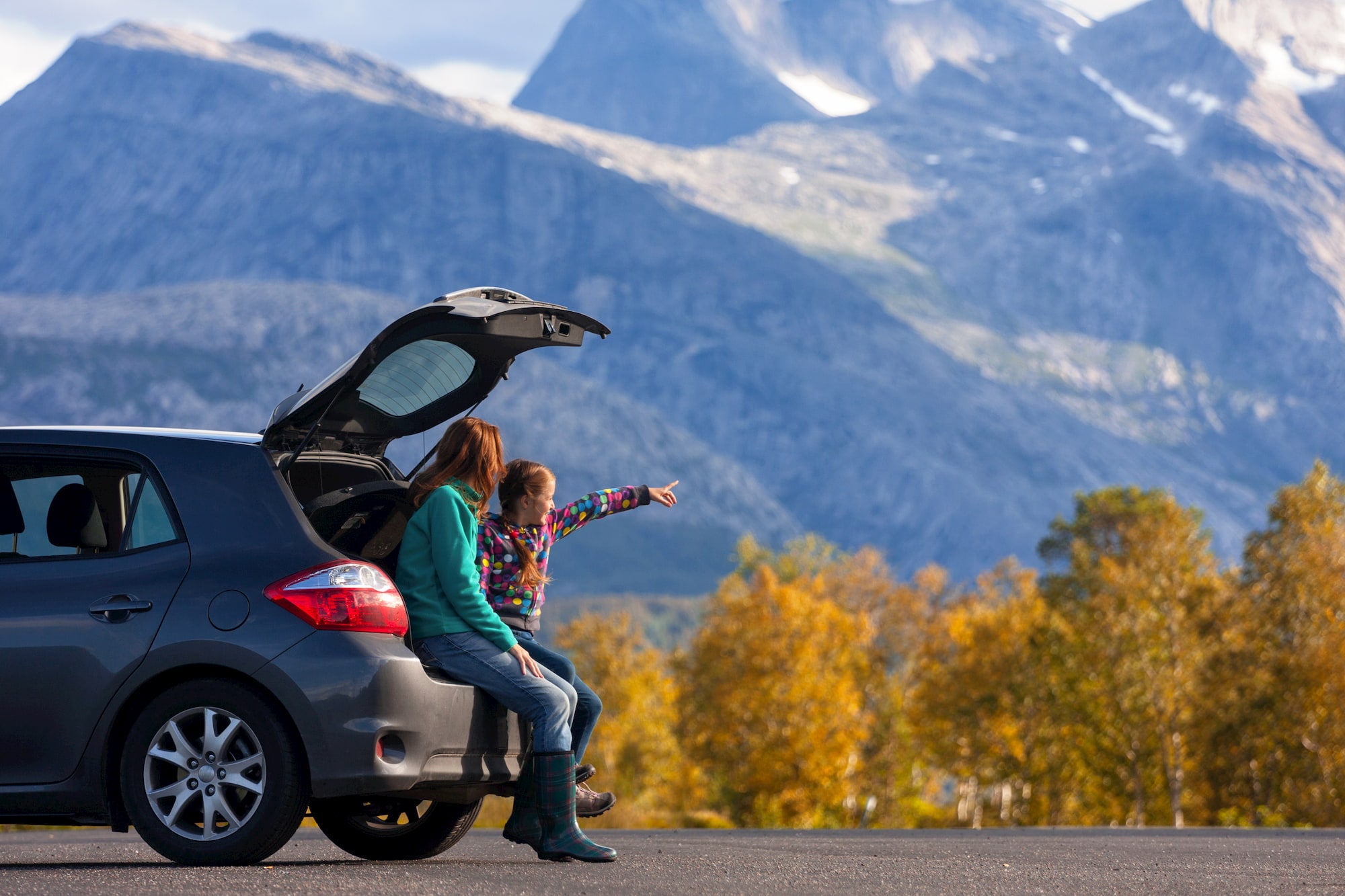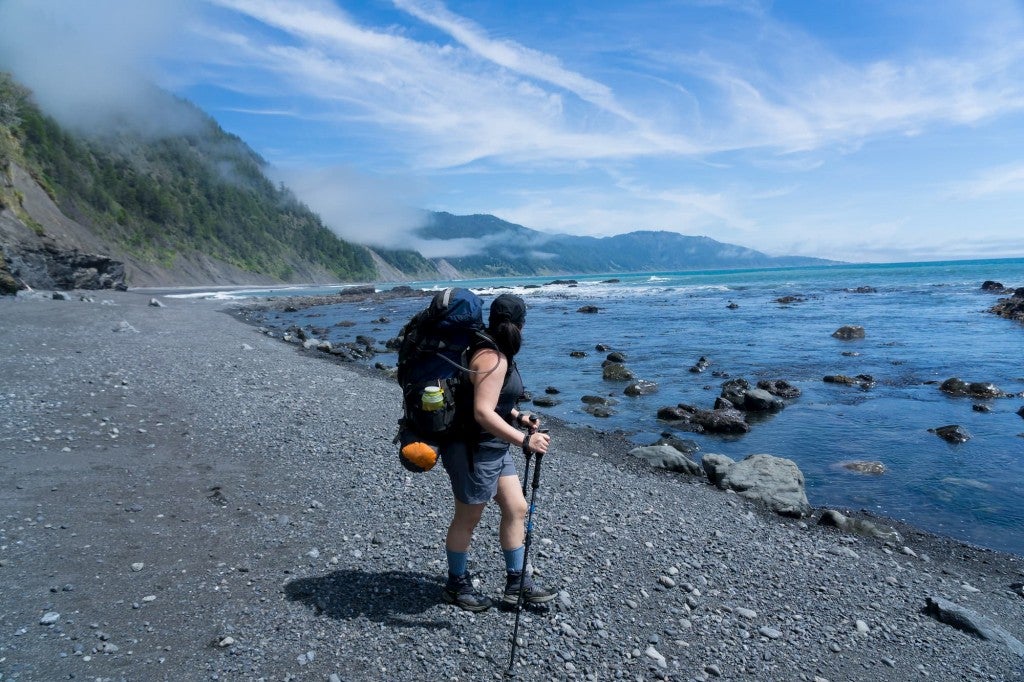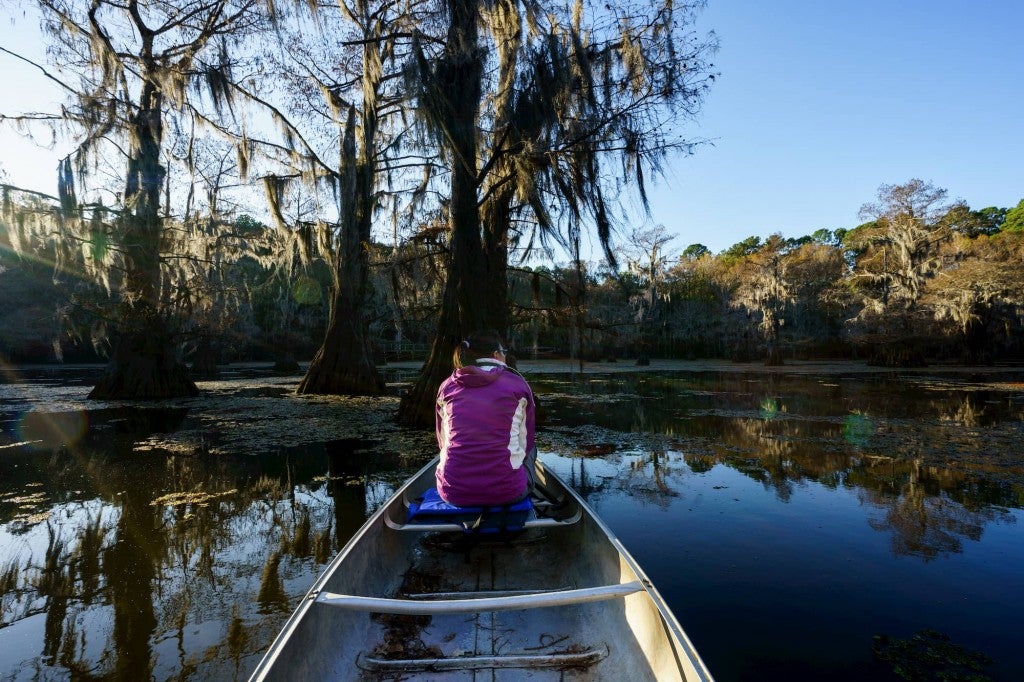There’s nothing more exciting and liberating than taking to the open road with a packed cooler, good music, and the thrill of a new destination to explore. A road trip is the perfect break from your usual life, when things are feeling a little too routine. It’s also a super cost-effective way to travel and enjoy the most amazing natural wonders in the U.S. No matter where you’re headed, these road trip essentials will keep you safe, connected, and well-prepared on the road.
Road Trip Essentials for Families
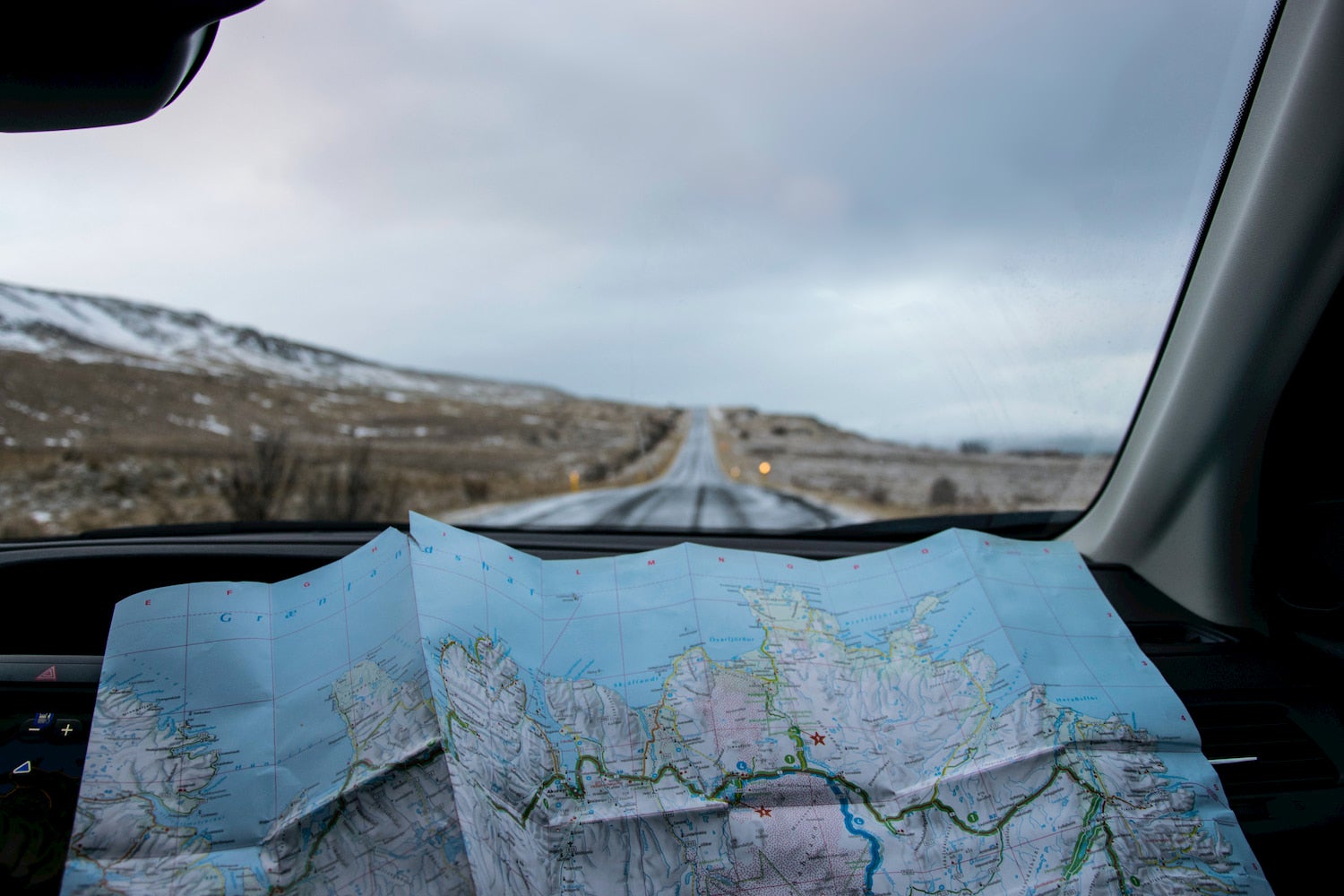
Paper Maps/Phone Screen Shots
The most memorable and adventurous road trips tend to involve a little bit of remote road travel. You can’t (and shouldn’t) assume you’ll always have a strong cell phone signal while visiting National Parks, campgrounds, or public lands. And the more you stray from the beaten path, the more crucial it is to be prepared. We recommend traveling with a good road atlas, printing out paper maps, and taking screenshots on your phone of camping reservations you have—or driving directions to particularly obscure places.
Another essential road trip strategy is to download an app that can give you offline access to maps. This feature all but ensures that you’ll never be lost, even when you’re completely off the grid. In fact, with our very own app The Dyrt PRO, users can download maps and then use them offline—even if you haven’t had any wifi or cell service in days. Plus, PRO users also get offline access to campground searches, reviews, and more! It takes a lot of the risk out of your road trip.
Iceless Car Cooler
An iceless car cooler is a priceless road trip essential. Iceless coolers plug into your car’s 12-volt accessory outlet and keep drinks and snacks chilled without the mess and inconvenience of keeping the cooler stocked with ice. Compact models typically have enough room for a six-pack of your favorite beverage, while larger designs have plenty of room for drinks and snacks, plus some can even double as a warmer. Several models also include adapters that fit into a regular wall outlet. That way, these coolers continue to be handy during your occasional stay at a hotel or cabin.
Extra USB Chargers
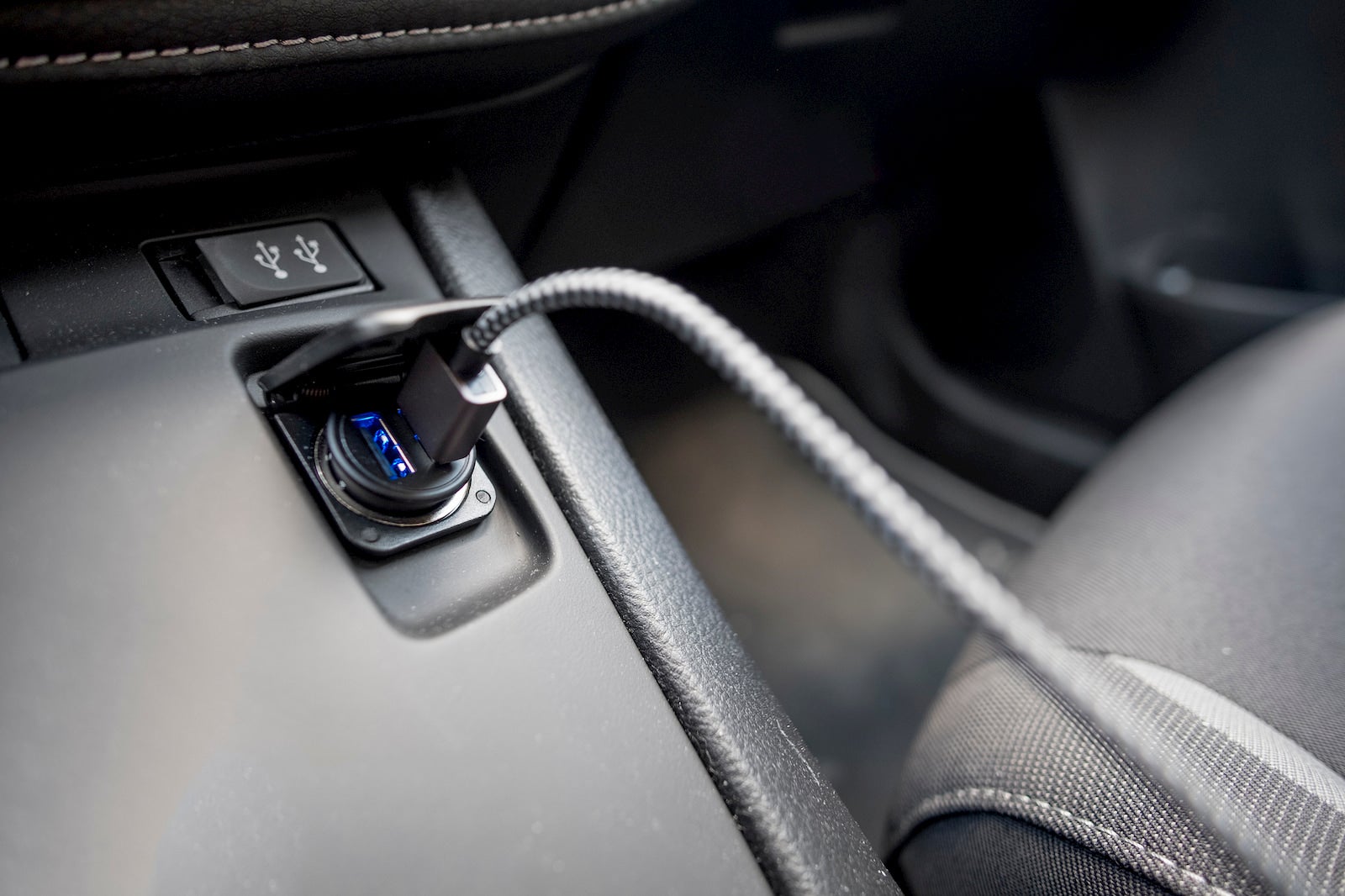
Battles can ensue over the car’s available chargers on even the shortest of road trips. From navigation apps, music, podcasts, and tablets for the kids, we’re relying more and more on our mobile devices for travel these days. Newer cars tend to come with a USB charger or two, but you can boost your car’s charging power with a wide variety of USB chargers that utilize your car’s AC outlet. Additionally, having a few fully charged portable, external batteries will help you avoid starting a family-wide charger war while you’re on the road.
Roadside Emergency Kit
Having a well-stocked roadside emergency kit can be a lifesaver, especially when traveling along remote roads and to seldom-visited locations. Your roadside emergency kit should at a minimum include:
- First-aid kit
- Jumper cables
- Multi-purpose utility tool
- Flashlight
- Cell phone charger
And of course, make sure to always pack more food and water then you think you’ll need, especially when traveling through desert terrain. In winter, always travel with extra layers and a warm blanket. Then there are additional items like a portable shovel, a bag of sand, and traction mats (aka traction boards) that are invaluable if you ever find yourself stuck in the snow, ice, or deep mud.
Road Trip Essential for RVers
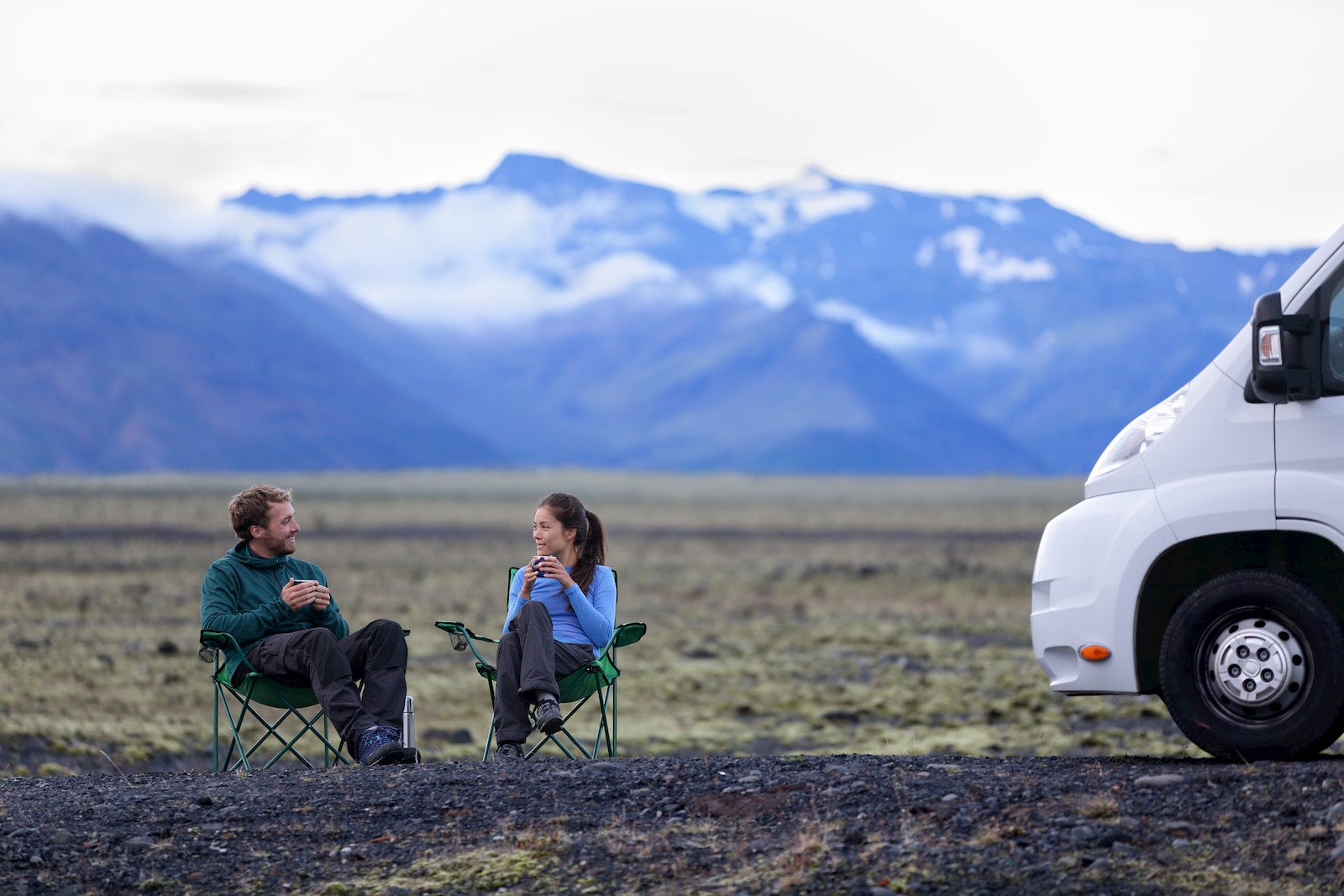
Solar Generator
A portable solar generator can be a fantastic addition to any long-term RVers road trip essentials kit. These generators become especially useful if you’re the sort of traveler that plans on spending a lot of time in BLM camping spots, which don’t offer electrical hookups. Standard generators require a steady supply of gasoline to run and they are infamously noisy to operate. Solar generators in contrast are both greener and quieter. Solar generators come in a variety of sizes, the smaller units are designed to recharge electronics and to provide power to lights. On the other end of the range are the huge generators that can provide enough energy to power appliances like cooking equipment or an air conditioner.
Wi-Fi and Cell Phone Signal Boosters
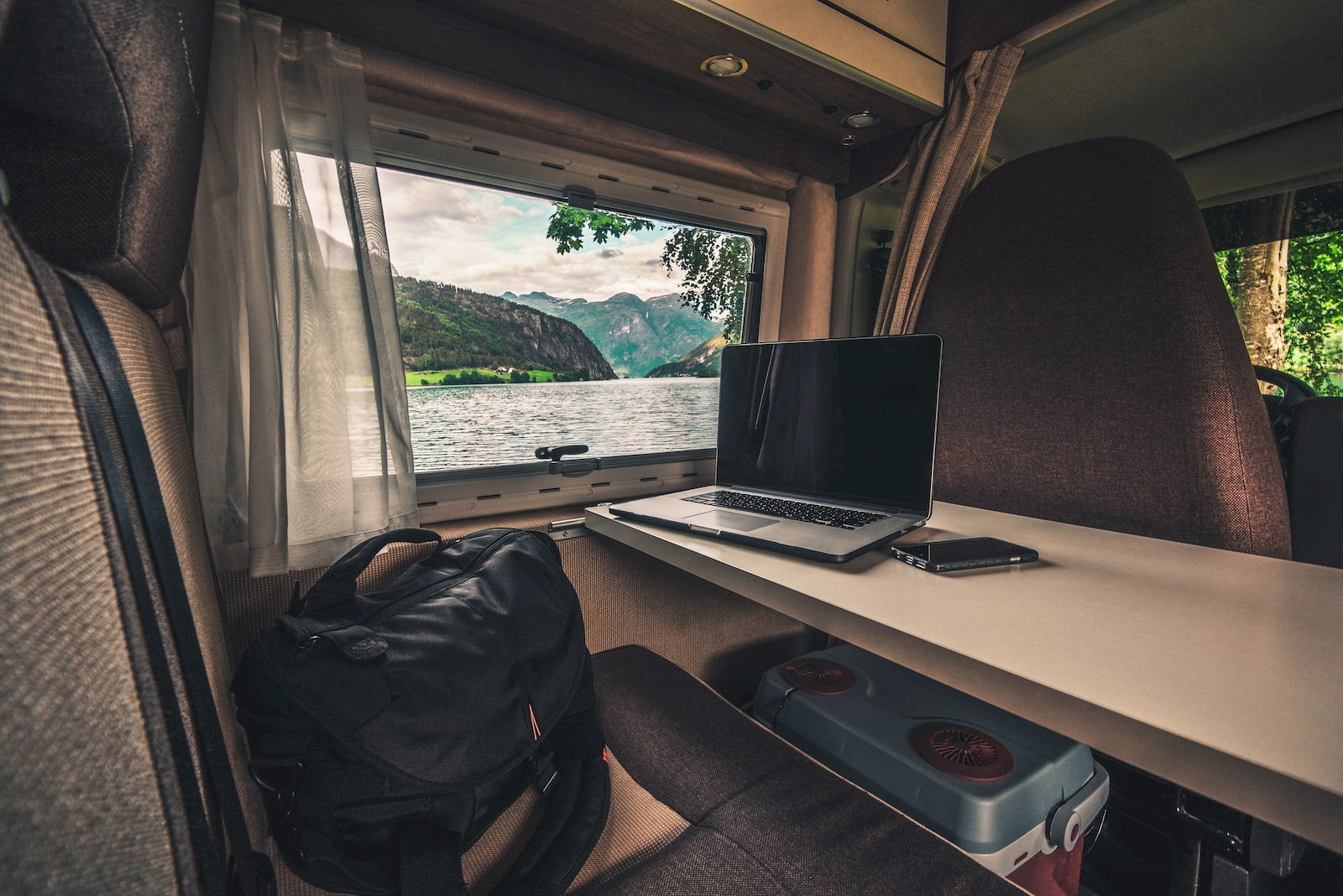
Spending time away from your cell phone can be beneficial to the soul. However, internet connectivity is crucial for long-term travelers that use their RV as a home office, or for travelers with safety or medical concerns. Wi-Fi and cell phone signal boosters work by amplifying existing signals, enabling your Wi-Fi or cell signal to perform better when you need it. In addition to extending cell phone coverage, boosters increase voice quality, reduce the likelihood of missed calls, and speed up internet access.
RV Roadside Assistance
Blowing out a tire on a remote dirt road, or breaking down a hundred miles from the nearest service station can turn a fun road trip into a complicated (and potentially dangerous) fiasco. An important note for travellers to remember is that many typical roadside assistance plans—like the ones that are included in your car insurance plan—usually do not cover RV towing or roadside help.
Consider purchasing an RV-specific roadside assistance plan for a little extra help before your next big road trip. If you do end up encountering some bad luck on the road, an RV roadside assistance plan is like having a personal guardian angel. Depending on the plan you choose, roadside assistance services can help with blown tires, jumpstarting your battery, and towing your RV to a repair shop. This can save you a ton of money if you find yourself in trouble on the road. Plus, many roadside assistance companies will even help coordinate with local RV repair companies, when you’re in unfamiliar territory.
Popular Articles:
Articles on The Dyrt Magazine may contain links to affiliate websites. The Dyrt receives an affiliate commission for any purchases made by using such links at no additional cost to you the consumer.

